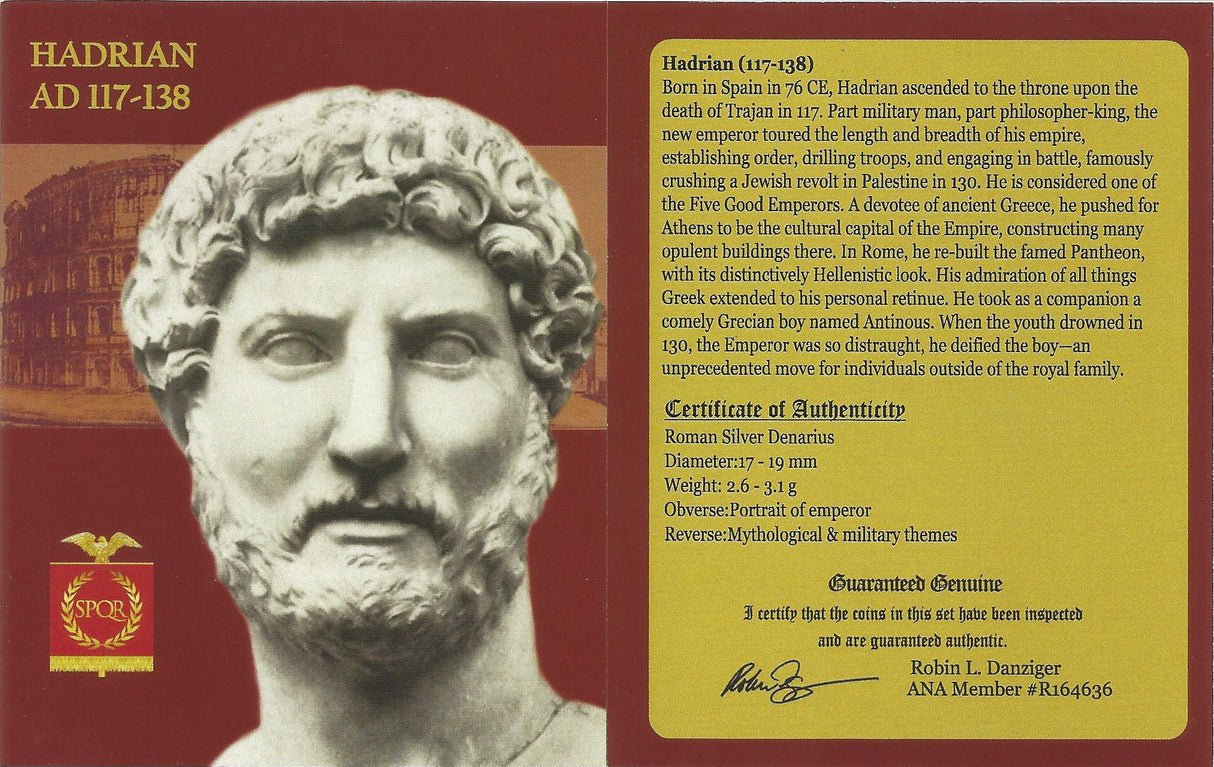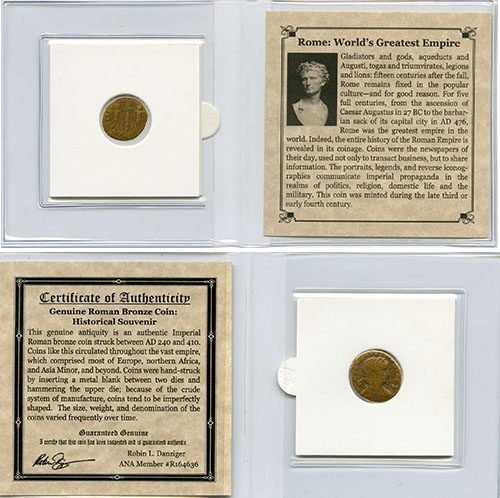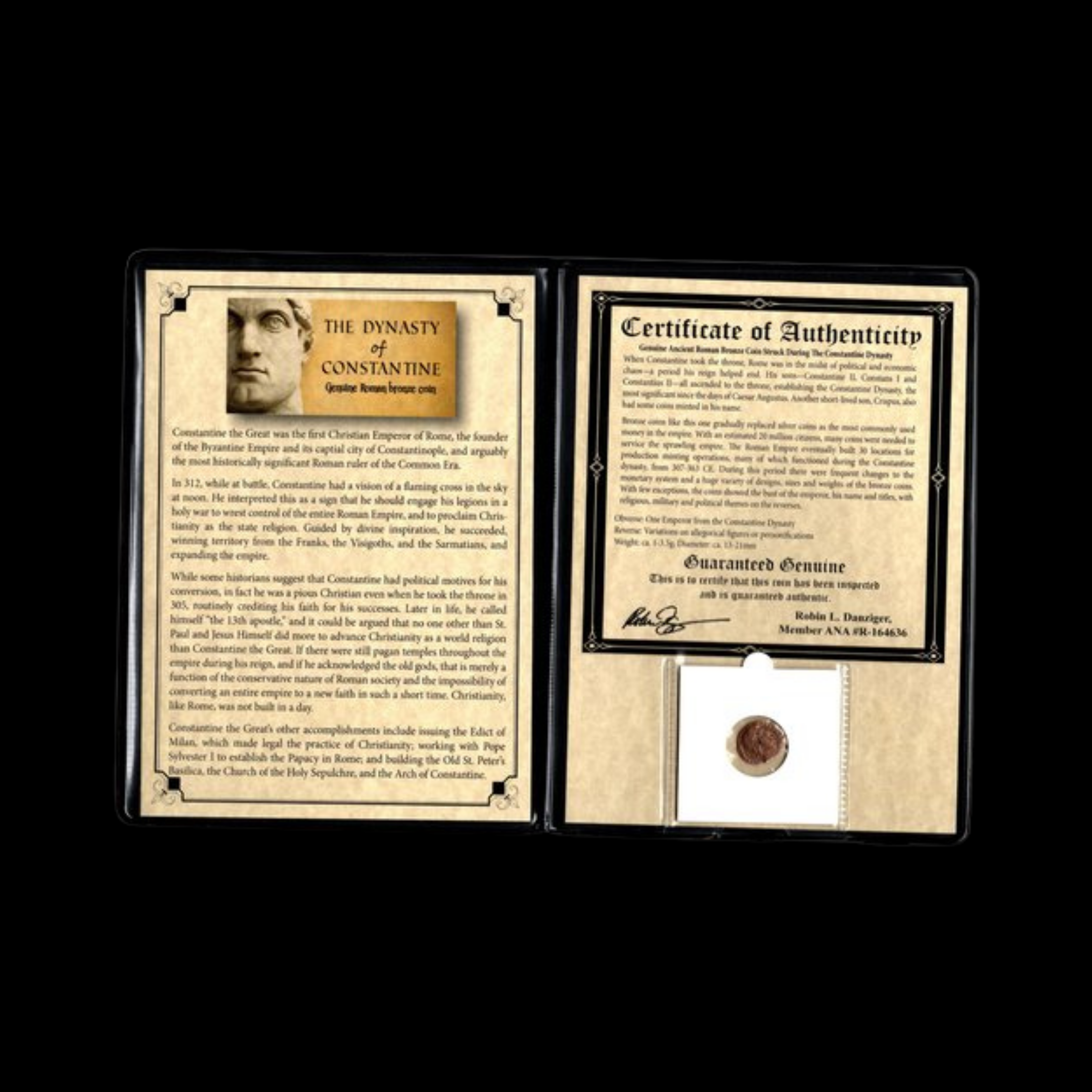Roman Silver Denarius Of Hadrian (AD 117-138) NGC
Coins in images are examples only.
Born in Spain in 76 CE, Hadrian ascended to the throne upon the death of his adoptive father Trajan. In Rome, he re-built the famed Pantheon, with its distinctively Hellenistic look, and in Britain, the remains of Hadrian’s Wall are still a tourist attraction.
Coins in images are examples only.
Born in Spain in 76 CE, Hadrian ascended to the throne upon the death of his adoptive father Trajan. In Rome, he re-built the famed Pantheon, with its distinctively Hellenistic look, and in Britain, the remains of Hadrian’s Wall are still a tourist attraction.
Coins in images are examples only.
Born in Spain in 76 CE, Hadrian ascended to the throne upon the death of his adoptive father Trajan. In Rome, he re-built the famed Pantheon, with its distinctively Hellenistic look, and in Britain, the remains of Hadrian’s Wall are still a tourist attraction.


























